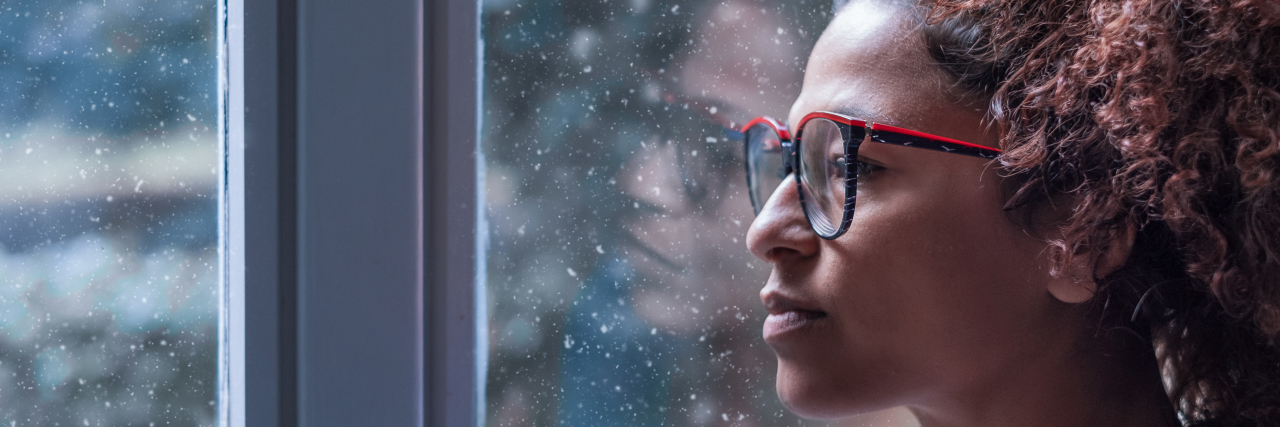Being chronically ill can be very lonely, especially when leaving the house is difficult, whether it be because of your physical health or your mental health. And for those who are able to leave the house, barriers in society make it more difficult, such as lack of access or needing special requirements.
“Over 9 million adults are often or always lonely.” — Sense
“Almost half of working-age disabled people are chronically lonely… that works out at about 3 million lonely disabled people in Britain… On a typical day, one in eight disabled people have less than a half-hour’s interaction with other people.” — The Guardian
Most of the time I am at home and in bed or on my sofa; I see the same few walls and windows week-in, week-out. Though I try to get out when I’m well enough with the help of a friend, family member or carer, that’s easier said than done as I need to think about things like wheelchair access, disabled parking, accessible toilets/Changing Places, energy and symptom levels etc. I get anxious that I might have a seizure or pass out in public, so I shy away from leaving the house. Often the payback from going out will leave me so ill I will be bed bound and even more isolated because I need to be alone in the dark and quiet to recover.
I’ve struggled a lot with clinical depression since I was 11 and being isolated and lonely as well as dealing with being chronically ill doesn’t help with my emotional health. It’s been proven that loneliness affects our physical and mental health. It’s more widely known that loneliness affects older people and there’s campaigns about it and charities set up to support older people, but what about adults with chronic illness and disabilities? I feel loneliness among those with chronic illnesses and disabilities needs to be addressed and acknowledged. I feel this needs to come not just from health and social care, but society as a whole. My support worker once tried really hard to find me a befriending service but none took on younger people.
For some adults with chronic illness and disabilities social media helps ease the loneliness, but social media sometimes makes me feel even more isolated. I see people living out their lives, getting their first home, thriving in work and education, getting married and settling down while I’m stuck in a cycle of illness and disability feeling like my life is going nowhere. You also have to remember that social media is a selective view of people’s world, and not everyone talks about their struggles openly.
More needs to be done to combat loneliness in adults with chronic illnesses/disabilities, especially for those who are housebound. More awareness is defiantly needed. I think more should be invested in helping alleviate loneliness. Initiatives such as befriending services so people have someone they can simply sit and chat with over a coffee, or go out and do something with the support of a befriender. It’s just another face for that person to see and some company, someone who’s not there for clinical reasons.
I find having my carers helps. My agencies try to match me up not just with those carers who have the expertise in my needs, but with someone I’d get along with as a person and they do a great job. When my carers come it gives me someone I can have a conversation with and they become “professional friends.” But then when they go I’m back to being on my own.
Most of the time I don’t mind being by myself. I enjoy the quiet and having my own routine, but I do get lonely and anxious. I think it’s in our human nature to want company.
One of the things I find most alleviates my loneliness is letter writing. This give me that “social” interaction I can’t do in person. I have pen pals and have become good friends with some of them. Some of my pen pals also have health problems so there’s a shared understanding, but as we spend our days dealing with symptoms and appointments, it’s nice to talk about non-medical stuff too, like what we’ve been watching on TV or our latest craft project. I recommend getting into letter writing as a way of combating loneliness. I don’t just write to my pen pals, I often send letters to other people I know who are ill as a way of reaching out to them. It’s just my creative way of saying “hello, I’m thinking of you,” plus letters are much prettier than a text and it gives me something to do.
Going back to the statistic at the beginning of this post, 3 million lonely disabled people in the U.K. — that’s a lot of people! So what can we do? If you know someone with a chronic illness/disability, reach out to them, send them a message or pop round to say hello. Don’t assume a person is unable to do something, invite them anyway. I’d much rather be invited to something and decline than not be asked at all. Some of these small gestures can go a long way when someone is feeling lonely and isolated.
Getty image by Tommaso79.

